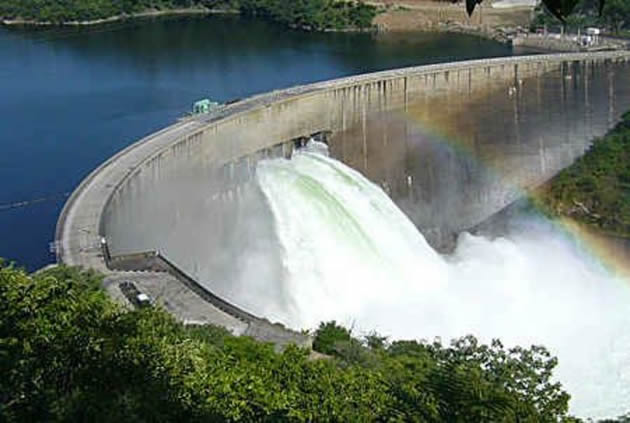‘High cost of power to affect industrial output’

 Golden Sibanda Senior Business Reporter
Golden Sibanda Senior Business Reporter
The high cost of power occasioned by the deficit blighting the entire domestic economy and the country in general will negatively affect industrial production, revenues and profits across productive sectors, financial analysts have warned.
Market watchers have forecast the debilitating power shortage to persist until thermal power projects come on board or water levels at the Kariba Dam have improved.
Kariba Dam, where Zimbabwe has a 750 megawatt hydro power station, was until recently the biggest source of electricity for the country before its output was cut to just 475MW.
Zimbabwe faces a crippling power deficit, spawning rolling and spontaneous outages for both industry and domestic users, as it did not invest in new capacity for about three decades.
The Southern African country requires an average of 2 200 megawatts at peak periods of demand, but is currently only able to churn out an average of 900MW after Kariba South was forced to scale down due to drastic fall in lake water levels.
The fall in lake water levels, according to the Zambezi River Authority, which administers the border river, was caused poor hydrological year around the river’s catchment area.
The knock on effect of the demand/supply mismatch due to constrained and insufficient generation capacity is forecast to result in low industrial output, fall in revenues and profit margins.
In its monthly snapshot for October IH Securities said the high cost of energy due to extensive use of fuel powered generators for electricity has strong negative bearing on industry.
“Therefore output across most industries will be subdued in quarter three (Q3;2015), affecting revenues, operating costs are likely to be impacted by higher generator use,” said IH Securities.
Government, through Zimbabwe Power Corporation is working on many initiatives to bridge the power deficit and projections indicate that additional supply from a thermal station will come through at least 42 months after financial closure.
ZPC has signed a $1,1 billion deal with Sino Hydro, also contracted to add 300MW at Kariba, to extend Hwange Power Station by adding units 7 and 8 for an additional 600MW.
Hwange has capacity for 920MW, but currently averages 480MW due to outdated equipment, hence the projected negative impact on the economy due to shortage of the key enabler.
The forecast lands credence to the general picture recently painted by financials released by listed companies including corporate behemoths like Econet, Innscor and Delta, which have registered decline either in revenue or profits.
The myriad of challenges besetting the companies has forced the majority of companies to trade down (cut prices) in to drive low the aggregate demand amid the liquidity squeeze.
Meanwhile, the difficult operating environment has seen activity on the Zimbabwe Stock Exchange continue to be subdued with October turnover falling 25 percent to $12,88 million.
Average daily trades came in at $585 000 with Econet, Afdis and Delta making the biggest contribution to total volumes trade at 25 percent, 24 percent and 13 percent, respectively.









Comments